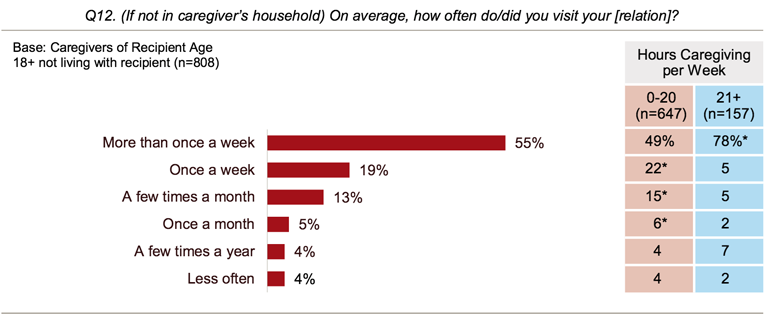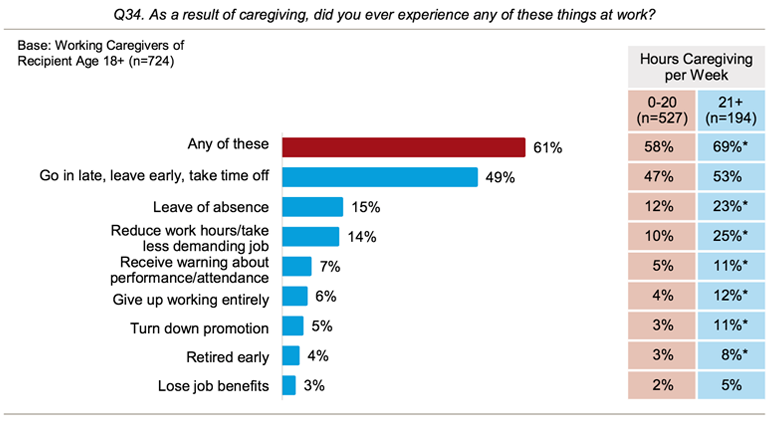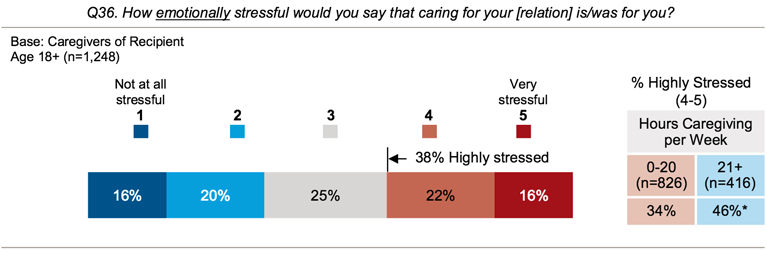The Mental and Physical Health of Caregivers.
 Recently in Health Affairs, Peter Buerhaus, David Auerbach, and Douglas Staiger discussed an approaching healthcare challenge—the reality that many nurses of the Baby Boomer generation will soon retire, creating a shortage of experience among the remaining RN workforce. The article caused me to reflect on the broader condition of caregivers in the US, particularly that of nonprofessional caregivers, who face many of the same scenarios that confront professional nurses but must do so without the training and expertise of the experienced RNs who will soon leave the healthcare field. As these caregivers play an ever-greater role in safeguarding the health of our aging population, a note on the physical and mental health of caregivers, and how public health can best support these individuals, and, by extension, the populations they care for.
Recently in Health Affairs, Peter Buerhaus, David Auerbach, and Douglas Staiger discussed an approaching healthcare challenge—the reality that many nurses of the Baby Boomer generation will soon retire, creating a shortage of experience among the remaining RN workforce. The article caused me to reflect on the broader condition of caregivers in the US, particularly that of nonprofessional caregivers, who face many of the same scenarios that confront professional nurses but must do so without the training and expertise of the experienced RNs who will soon leave the healthcare field. As these caregivers play an ever-greater role in safeguarding the health of our aging population, a note on the physical and mental health of caregivers, and how public health can best support these individuals, and, by extension, the populations they care for.
作为
Th

AARP Public Policy Institute, National Alliance for Caregiving. Caregiving in the US 2015. NAC and AARP Public Policy Institute; 2015.
The financial costs of caregiving can be significant. In 2007, the out-of-pocket expense for individuals caring for someone 50-plus was $5,531. These costs can be compounded by loss of time; caregivers must often minimize other important activities to continue to provide support. An estimated 37 percent of those providing care for someone 50-plus in 2007 needed to cut back on work hours, or even quit their job. This is particularly significant, as most caregivers are employed; approximately 60 percent of caregivers between the ages of 50 and 64 work either full-time or part-time. Forty-nine percent of employed caregivers have said that they needed to either arrive to work late, leave early, or take time off as a consequence of providing care; 15 percent have said that they needed to take a leave of absence (Figure 2).

AARP Public Policy Institute, National Alliance for Caregiving. Caregiving in the US 2015. NAC and AARP Public Policy Institute; 2015.
公关
Caregiving can also pose challenges to mental health. Significantly, 49 percent of caregivers said that they do not feel that they had a choice in taking on their responsibility (Figure 3).

AARP Public Policy Institute, National Alliance for Caregiving. Caregiving in the US 2015. NAC and AARP Public Policy Institute; 2015.
Given the challenges of caregiving, and the fact that it often comes as an unsought responsibility, it is perhaps not surprising that four in 10 caregivers say that they consider their caregiving activities to be highly stressful, with 38 percent ranking their stress level as four or five on a five-point scale (Figure 4).

AARP Public Policy Institute, National Alliance for Caregiving. Caregiving in the US 2015. NAC and AARP Public Policy Institute; 2015.
Caring for someone with a chronic or long-term physical or mental health condition appears to be particularly stressful for caregivers. Fifty-three percent of caregivers supporting someone with a mental health issue, 50 percent supporting someone with Alzheimer’s disease or some other form of dementia, and 45 percent of those supporting someone with a long-term physical condition report feeling emotional stress. This stress has been associated with the level of suffering that the caregiver perceives in the care recipient, with emotional and existential distress significantly linked with rates of caregiver depression and the use of antidepressant drugs. It is important to note, however, that caregivers also cite the positive elements of caregiving. Even when the experience becomes stressful and intense, caregivers will say that it provides meaning, gives them an opportunity to learn new skills, strengthens their relationships with other people, and makes them feel good about themselves.
Sa
Ul
I hope everyone has a terrific week. Until next week.
Warm regards,
Sandro
Sandro Galea, MD, DrPH
Dean and Robert A. Knox Professor
Boston University School of Public Health
Twitter: @sandrogalea
Acknowledgement: I am grateful to Eric DelGizzo and Professor Lisa Fredman for their contributions to this Dean’s Note.
Previous Dean’s Notes are archived at: /sph/tag/deans-note/